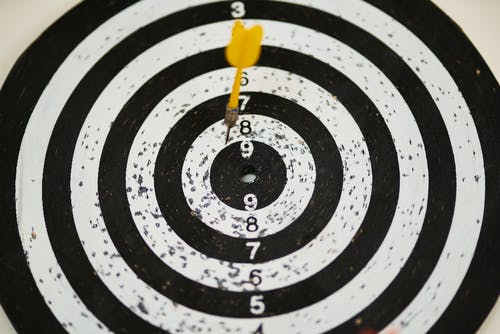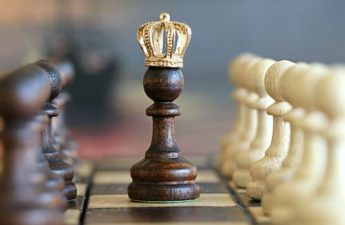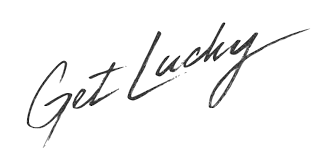The relationship between our awareness of the roles of luck (chance) and skill yields a horseshoe.
It’s a U curve.
Assume there are different levels of skill at a task, profession, trade, or whatever.
As a person progresses in their skill, their attitude towards luck and chance changes.
It starts out where the beginner feels they have no impact on the outcome. Next, after gaining skill the person may become overconfident and feel they are in command. Skill conquers all. Luck doesn’t play a role. The highest level of skill – mastery – is realizing that the more they learn the less they know. That’s when the realization that luck plays a role and the trick is to know how to manage it.
The hard part is for an individual to acknowledge and recognize this pattern. Here’s more detail.
First, there is the beginner.
To the beginner, the role of luck in an outcome looms large. Luck seems to be nearly the entire reason for an outcome.
This is because the person’s skill is so low that they cannot impact the outcome.
As a result, those with a beginner level of skill have the impression that everything is about luck. They may think the cause of results is nearly completely up to chance.
Because their skill is so low, they believe that luck is the whole story. That’s the way it feels. Luck is therefore very important. The role of chance looms high. They feel buffeted by the winds of chance.
At this level, it probably really is chance. Sometimes the person believes that skill can have no impact under any conditions. They don’t know what they don’t know or how to change the situation.
This is the first level of the “U”. Where luck seems to be all there is.
The second stage is when a person increases in skill.
The second level in the “U” is when the person gains skill. The skill level increases so that their actions have an impact on the outcome.
In fact, their skill level becomes sufficiently high enough that the outcome is often, maybe usually, positively affected by their skill and actions.
Most people who study a skill do not usually progress beyond this point. They may think they know it all but are mistaken. This attitude is partially because of the amount of work it takes to achieve this level of skill. The sense of satisfaction and pride in developing the skill is strong.
The combination of skill, work involved to obtain the higher skill, and a lack of self-awareness results in overconfidence. They may begin to believe they are mostly masters of their own fate. But they don’t know what they don’t know.
This is the middle part of the U.
Yes, there is a level beyond this.
The final stage is when a person’s skill progresses beyond the second stage and is closer to true mastery.
True mastery means making the skill your own. Understanding its strengths and limitations. Knowing the situation being addressed and how the skill toolbox can be realistically applied. And most importantly understanding yourself. This combination allows a person to think of situations and problems in terms of probabilities.
At an expert level of skill, you see your shortcomings and realize that no matter your skill level chance has a strong role to play.
Skill mastery can change the probabilities in favor of a positive outcome.
The idea of the U is similar to that of the classic Dunning-Krueger effect. That states the more incompetent you are, the less aware you are of your own incompetence. Studies of the effect have found that people go quickly from being raw beginners who are very aware of their own limitations to unconscious incompetents. That is people who no longer realize how much they don’t know and instead think of themselves as being quite proficient.
I’d like to emphasize the idea of “conscious incompetents.” Where people start becoming aware of what they don’t know and what can’t be controlled while developing the highest knowledge and skill level.
The following quote says this nicely: “Doubt is not a pleasant condition, but certainty is absurd” – François-Marie Arouet known by his nom de plume Voltaire
Looking confident and being strong are not one and the same.



